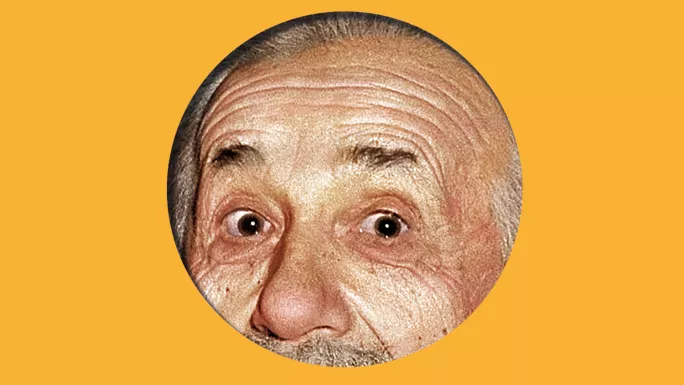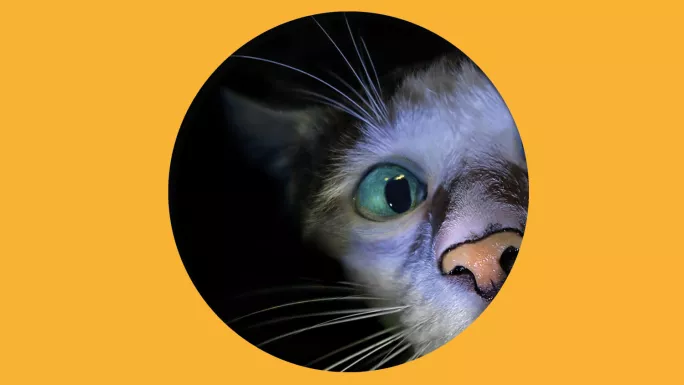In defence of the curious

History does not paint a favourable picture of curiosity.
Pandora’s inquisitiveness about the contents of her infamous box led to all the evils of the world spilling out. Likewise Eve, simply interested in knowing the difference between good and evil, inadvertently ushered in death and pain in childbirth.
Meanwhile, Plato, who you might have thought would know better, actively encouraged a “noble lie” about the bronze, silver and gold strains of humankind, lest the common people became too curious about the divinely ordained nature of their lowly positions in society and challenged them.
What these ancient narratives have in common is that they discourage curiosity for the sake of maintaining the status quo, and especially order.
It’s a dangerous thing for the authorities when people ask too many questions about established hierarchies and traditions. Anarchy lurks close by, and is to be much feared. Both Socrates and the proverbial cat paid the ultimate price.

We tend to regard curiosity rather more positively these days, I hope; particularly in schools. No classroom should ever echo with the answer “because it is” to a curious question of “why”. No right-thinking teacher outside of a totalitarian regime would surely exclude curiosity from their teaching.
And yet, much of our current system threatens to crush curiosity out of existence, to stomp it into oblivion with the heavy, deadening boots of accountability demands, progress measurements and formulaic, overly crammed curricula.
This nebulous, difficult-to-measure quality is under threat. I believe that we should not just protect it, but that the stimulation of curiosity should be much more at the front and centre of our collective educational discourse. Because it underpins almost everything we try to do as teachers.
John Dewey, the US philosopher and educational reformer, wrote, tub-thumpingly, that: “Education is a process of living and not a preparation for future living.”
Amen to that.
The experience of curiosity is a crucial part of this “process of living”, here and now. It is an eminently desirable psychological state for which to aim, for no other reason than that it heightens our sense of being alive, and is deeply fulfilling. To be curious is a basic part of human flourishing. Being interested in what you’re doing is a central part of living well, and attaining Csikszentmihalyi’s holy grail: the state of “flow”; that which drives us on to further participation in an absorbing question or task without reference to extrinsic factors.
It goes without saying that this is what we all hope our classroom charges will experience: deep engagement with the ideas with which we confront them, and not simply because they’re on the syllabus.
This approach will boost, not take away from, our other aims. Einstein, whose early academic achievements were famously modest, realised that it was first and foremost his curiosity that eventually enabled him to explore the mysteries of the universe.
“I have no special gift. I am only passionately curious,” he said.
He went further, and described curiosity as “holy”, and something to be held on to at all costs: “The important thing is not to stop questioning. Curiosity has its own reason for existence.”
I love this. Curiosity is not simply ‘useful’ for making scientific discoveries, (though it is this, too). It has its own value because of the joyful experience of being curious. Einstein is not wondering about future possible applications when he beholds the beauty and elegance of his discoveries, though these will follow. He seems to see curiosity as something akin to a spiritually desirable state.
There is in a moment of curiosity an absorbed attentiveness, perhaps comparable to meditative or contemplative states. There is a faith in the “worthwhileness” of giving one’s attention to something fully, and that it will be rewarded, not just immediately, but also in the near future, with similar sensations.
We should marvel that we sometimes succeed in grasping matters deeply, and we should revolve our educational philosophy around the human satisfaction that comes from that process.
I hope there would be few teachers who would argue against the absolute importance of bringing curiosity, as explained here, into the classroom, but how far do we (or can we) nurture, prioritise and value it in education today?
The wonderful US writer Wendell Berry diagnoses the problem with education with his usual acuity: “Schools are no longer oriented to a cultural inheritance, but to the career, which is to say the future, of the child. The orientation is thus necessarily theoretical, speculative and mercenary… Local schools serve the government’s economy and the economy’s government.”
Make things interesting
Curiosity, and the enjoyment of learning that goes with it, is relegated. Psychological states are subordinated to distant economic imperatives, and above all to the great gods of growth, measurement and international Pisa (Programme for International Student Assessment) tables. Local interests become irrelevant.
The goals of global and economic service, Berry believes, “cannot be served with affection, but only with professional zeal or professional boredom”.
The same could be said of the classroom. If the organising principles around the classroom are related primarily to distant, impersonal, centralised aims, how motivated are our students likely to be? If the real drivers of education are not even based on local, let alone individual, interests, how likely are we to find our children interested in what we ask them to do? Where is the scope for giving individual curiosity its “head” in such a scheme?
Curiosity is, by its very nature, local, imminent, personal, pressing, to the fore. But it’s hard to be curious when you are presented with a singularly uninspiring, detached and distant vision of life. “Absorb the following information and assessment criteria or you’ll fail your exams and end up broke and jobless.” Such is the implication of the system.
Perhaps we should take our lead from the great educational idealist Kurt Hahn, founder of the Outward Bound movement, inspiration for the Duke of Edinburgh’s Award scheme and originator of some of the boldest and most adventurous schools of the 20th century. He summarised his vision in this way: “I regard it as the foremost task of education to ensure the survival of these qualities: an enterprising curiosity, an undefeatable spirit, tenacity in pursuit, readiness for sensible self-denial and, above all, compassion.”
It’s interesting that Hahn talked in terms of ensuring “survival”. He regarded the above qualities as the basic goods of life, but under attack.
This chimes with the view of Sir Ken Robinson, who thinks we’re undermining our children’s natural curiosity through the way we set up our education system: “Children are natural learners. It’s a real achievement to put that particular ability out or to stifle it. Curiosity is the engine of achievement … in place of curiosity, what we have is a culture of compliance. Our children and teachers are encouraged to follow routine algorithms rather than to excite that power of imagination and curiosity.”
No one goes into teaching to deliver human algorithmic outputs, surely?
Again, here’s Robinson: “Teaching, properly conceived, is not a delivery system … Great teachers mentor, stimulate, provoke, engage.”
All very well, Ken, but how do we do that as a system?
On an individual level, great teachers manage to do great things like provoke and engage to make children curious. For many, it’s an intuitive part of the way they relate to young people.
But large-scale systems can’t simply copy the instinctive brilliance of the few. They need to identify common contributory factors so that they can accommodate them within their structures.
Researchers from Harvard, under the banner of Research Schools International, conducted research to identify factors contributing to the inquisitiveness in pupils. Their findings won’t surprise students of human motivation. A combination of pupil autonomy, social connection, appropriate challenge, academic confidence and meaningful choice of active classroom activities leads to greater intrinsic motivation, which, in turn, fuels inquisitiveness. This feeds a virtuous circle in which students enjoy better relationships with their teachers and score more highly on all sorts of indicators of wellbeing.
On this model, highly authoritarian, relentlessly front-led instruction, with zero-tolerance approaches to discipline and cultures of compliance, seem unlikely to cut the mustard of genuine curiosity.
Even where evidence suggests that such methodologies “work” in terms of measurable outcomes, we might ask to what extent they inculcate those most desirable attributes: a love of learning, a life-long appreciation of enquiry for its own sake or a capacity for self-determination. In the terms of education author and consultant Tom Sherrington’s excellent “Learning Rainforest” metaphor (from his book The Learning Rainforest), would we rather have the wild bio-diversity and beauty of a lightly managed rainforest or rows of neatly managed, uniform trees in a plantation?
Teachers are revolting
It’s clear which way we are headed. But, as a profession, it’s also clear that we’re pretty fed up with so much of our contact with children being driven by the pressures of excessive exam board content, narrow assessment regimes and the relentless requirement to generate data. No wonder there’s a recruitment crisis and a simultaneous exodus. We all want to see children’s eyes light up in our lessons, but much is against us, and them. The perceived risks in giving students choice over what, or how, they learn are deemed too great when the treadmill of exam preparation demands rapid content coverage and endless exam practice. Off-piste exploration is time lost.
“Sorry, little Jonny. Great question, and lovely idea, but must … finish … syllabus ...”

Of course, I’m polarising. Every day, hordes of noble teachers defeat the odds and deliver stimulating lessons that capture children’s curiosity. But it’s not easy, and nor is it measured or overtly rewarded. Taking risks, handing over autonomy to kids and experimenting is playing with fire - and we know what happened to Prometheus - but it’s what teachers do in spite of the system, not because of it. Easier to grind out the results the safe way and hope for the best in terms of children’s wider development and psychological states - but happily many teachers find a way of cutting imaginatively against the grain, at least some of the time …
Small acts of revolution.
There are people outside the teaching profession, too, who are lining up in support of the rebel alliance. John Lloyd, creator of Blackadder, Spitting Image and, more recently, QI, is on a mission to make our schools more interesting - and our students more curious. Addressing the Headmasters’ and Headmistresses’ Conference (HMC) in Belfast, he unveiled his plan to run QI boot camps to inculcate a methodology for the stimulation of curiosity.
The first “boot camp” has just been hosted at Bedales School in Hampshire. A number of other local schools were invited to join in. Lloyd plans to run workshops, using his QI team, to teach lessons via the “QI method”, and to roll the model out, if it succeeds. For those familiar with the TV show, the premise is that you start with something self-evidently fascinating, because of its surprising or amusing nature, and then you use that as an opener to go into a subject more deeply, bumping into other remarkable facts on the way, and almost certainly being extremely droll in so doing.
Some will simply see in all this the well-established concept of the “hook” to get a lesson going, and maintain that there’s nothing new here. Time will tell, but it is a laudable experiment. And where Lloyd’s team might also enhance the current practice of hooks is in their diligent, well-resourced researching and collation of dazzlingly interesting facts.
The fact that teachers don’t have time to do that themselves, and that we may have to outsource our interestingness, is pretty damning. There’s no doubt that the principle of being able to pepper our lessons with startling, hilarious but relevant anecdotes is a good one. But it requires a teaching workforce that knows its subject matter deeply, and is sufficiently in touch with the periphery of its material to be able to draw it in at appropriate moments. We won’t get very far if we are only interesting at the starts of lessons.
Teachers are so grossly overworked that they are often unable to maintain a living connection with their specialisms beyond the classroom. They rely on what they recall from university. The vast majority of professional development is about pedagogy, not subject knowledge. The curiosity-inspiring, off-piste periphery is increasingly squeezed out, not just by the pressure of content coverage, but also because, unvisited, it is fading from teachers’ memories. If we can’t be curious about our own subjects, what chance do the children have?
Time to think
That’s not to underestimate the impact of the way our curriculum is organised, though. Syllabuses are increasingly crammed with things to know. A-level and GCSE reform has seen the amount of content dramatically increased in many subjects, with the consequence that more time is spent motoring through material, and less on ruminating, thinking and asking probing questions about the subject matter. Tellingly, we reward knowing answers, not asking questions. How does this sit with the nurturing and valuing of curiosity? Not well.
I am admittedly a small sample size, sitting solitarily in my study during the holidays as I write, unusually at leisure, but it is only in moments such as this that I find I have the luxury of being able to be genuinely curious. I can finally pick up and flick through the pages of the books I have bought and not read this term, pursuing whichever interest rises to the fore of consciousness. The meanderings of my curiosity are not subject to the demands of tomorrow’s teaching schedule. They are set free. It feels good. Time to stand and stare. Well, sit …
Bertrand Russell, too, recognised the underlying problem in his delightful utopian essay “In praise of idleness”. We work too much. “In a world where no one is compelled to work more than four hours a day, every person possessed of scientific curiosity will be able to indulge it, and every painter will be able to paint without starving … teachers will not be exasperatedly struggling to teach by routine methods things which they learnt in their youth, which may, in the interval, have been proved to be untrue.” The result? “There will be happiness and joy of life, instead of frayed nerves, weariness and dyspepsia … Since people will not be tired in their spare time, they will not demand only such amusements as are passive and vapid.”
John Badley, founder of my own school, came to a similar conclusion about the formula for inquisitiveness. Four hours of academic “head” work in the morning, four hours of “hand” work in the afternoon on the farm or the sports pitch, and evenings kept gloriously free for cultural pursuits of one’s own choosing, socialising and well-earned relaxation. “Head, hand and heart.” Anyone listening? Nick? Damian?
Perhaps this, then, is the essence of curiosity. To have the time and freedom to pursue moments of piqued interest wherever they lead simply because it is enjoyable to do so. And because we are naturally curious beings, it is a gratifying fulfilment of our essential nature. This is only possible when our minds are not cluttered with a heaving task list, a mountain of marking or a runaway inbox. Or for our students, when their attention is allowed to drift from long lists of homework and tests to revise for or from keeping up with the activities of several hundred “friends” on social media. Or in terms of our lessons, when there is the time to respond unhurriedly to tangential questions; the time to know enough to be able to do so; the freedom from stress that enables us to access our diffuse knowledge base.
Much frenzy mitigates against this state of affairs for us and for the children. We should demand a pause to be curious about ways in which things could be otherwise.
Alistair McConville is deputy head of Bedales School in Steep, Hampshire
You need a Tes subscription to read this article
Subscribe now to read this article and get other subscriber-only content:
- Unlimited access to all Tes magazine content
- Exclusive subscriber-only stories
- Award-winning email newsletters
Already a subscriber? Log in
You need a subscription to read this article
Subscribe now to read this article and get other subscriber-only content, including:
- Unlimited access to all Tes magazine content
- Exclusive subscriber-only stories
- Award-winning email newsletters